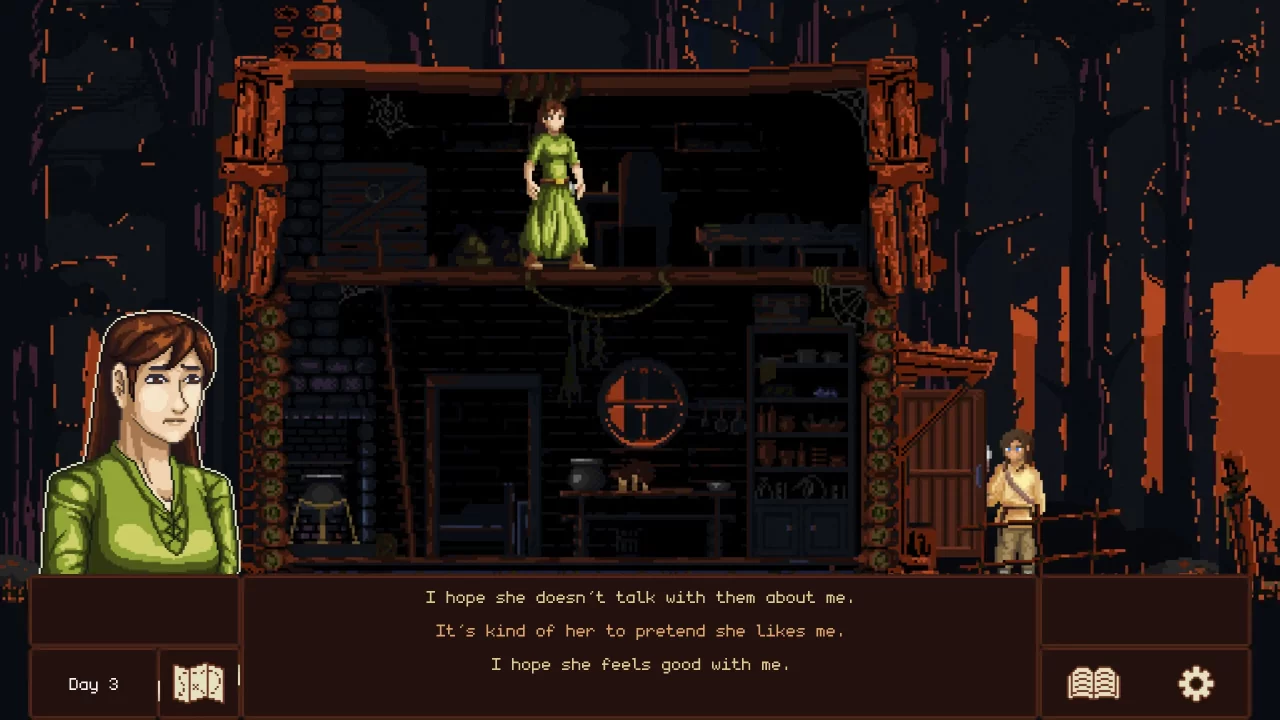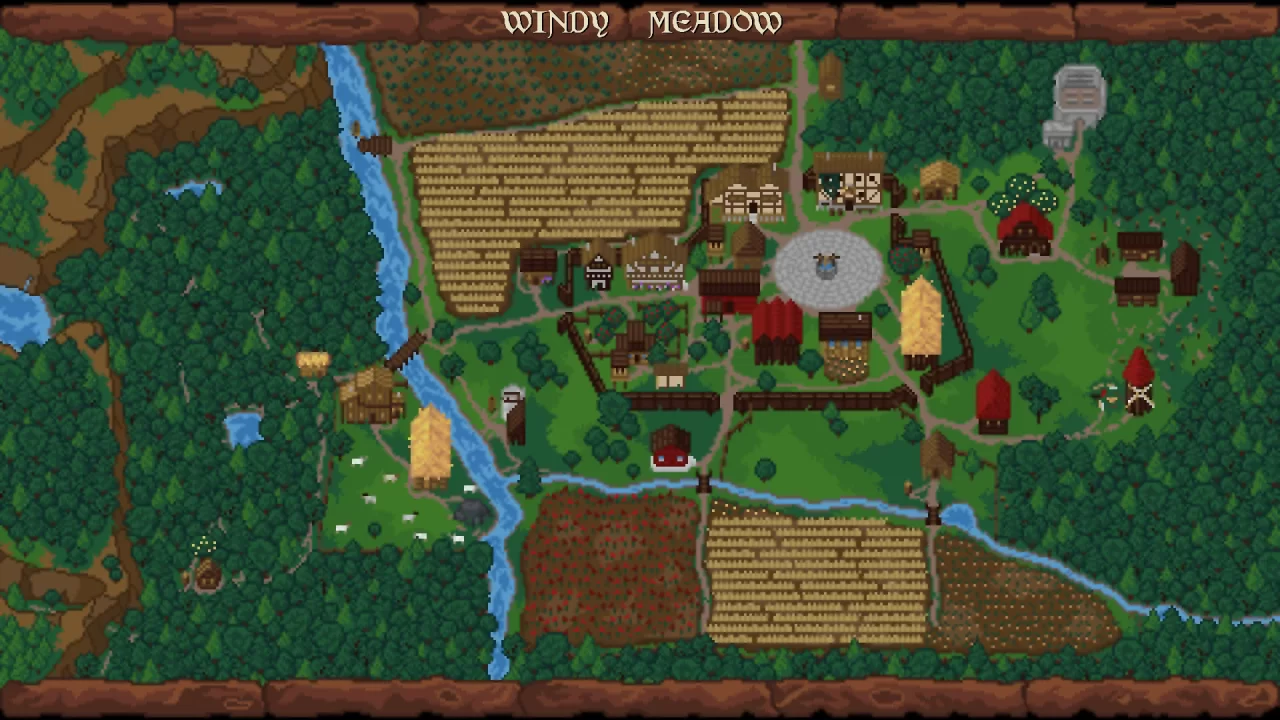Two of my favorite things: wind and meadows. Wait, this game takes place in the Roadwarden universe? Scratch that. Three of my favorite things. Windy Meadow – A Roadwarden Tale takes place in a village where merchants pass by, sheep mill about, and an eclectic group of citizenry enjoys drinks at a small inn most nights. Lackadaisical in vibe, Windy Meadow can feel a bit slice-of-lifey in its meandering tale. Until tragedy strikes.
We follow short tales centering on three villagers: Vena, a soldier’s daughter and a budding soldier herself; Fabel, a young, aspiring bard who lost his legs as a child during a bandit invasion; and Iudicia, a young herbalist who enjoys solitude because she doesn’t quite understand the social world. All three characters live in the same place, but their goals and ambitions are as distinct as how they live in Windy Meadow.
Gameplay functions linearly with few meaningful dialogue-based decisions in this visual novel. This is a simple, short story with mostly binary outcomes for each character that don’t change the ending all that much, aside from giving players the pleasure of bestowing their characters the send-off they deserve. Don’t expect any puzzles, stat screens, or hidden item nonsense.

This is a low-stakes game—for the most part. Realistic decisions present themselves about everyone’s crossroads in life. Do I marry this person, leave my home to achieve my dreams, try to make amends with my family, etc.? While Roadwarden takes place in a fantastical world with griffins, goblins, mages, and the undead, the core storytelling is more historically medieval than magical. Windy Meadow leans even more heavily in that direction.
Themes expressed in Windy Meadow resonate with life today. As people reach that tender age of early adulthood, big decisions must be made. Do rural communities lose their people and become forgotten? How important is it to take care of one’s aging parents if it means sacrificing your personal dreams? Should we accept who we are and enjoy our inner peace or challenge ourselves with discomfort in in order to grow? The themes and questions are heavy and meaningful, but aren’t answered with the depth they deserve.
I enjoyed the characters I met—and it’s initially overwhelming how many characters we have to get to know. By the end, I understood the society my characters lived in and the various dynamics. What helps with this is that key names, places, and events are highlighted, and upon hovering over them with the mouse, players can learn more about that person through the lens of the active playable character. As a result, reading the description for each character or event is fresh while controlling the three leads separately.
While text-heavy and without voice acting, pauses occurred tastefully and intuitively in dialogue during awkward breaks in conversation or tense moments. The quality of the dialogue is natural and expressive for most characters, though tertiary characters may run together or lack depth considering the sheer quantity of characters and short five-hour jaunt through Windy Meadow. Somehow, though, while the writing is competent from a dialogue perspective, the days drag on as conversations oftentimes don’t go anywhere. The intention is to attach ourselves to our three leads in a five-hour game, but how can we do that with so little time dedicated to each while also witnessing benign interactions?
Some interactions have a dense, substantive quality to them, while others seem like they don’t add much to the story or the characters. On top of that, we hear about the difficult decisions sometimes exhaustively and repetitively rather than building on ideas or adding something new. I found myself eager to find out how each character ends their story, but I’d be lying if I said I wasn’t waiting for the game to be over at a certain point.
Roadwarden fans should know that while Windy Meadow takes place in the Roadwarden universe, it doesn’t have the same atmosphere as Roadwarden. The music and visuals may significantly contribute to this. While Roadwarden was more about its text than visuals, every screen had sepia stills that absolutely impacted the overall feel. On top of that, Nick Roder doesn’t return with his melancholic, drowsy tunes; what we get to enjoy are a bunch of acoustic-based pieces, which are pleasant enough but discordant with the Roadwarden feel some fans may be hoping for.
This puts Windy Meadow in a paradoxical position. It’s an accessibly short, easygoing title that newcomers might find challenging to enter because they lack prior knowledge of the ecosystem Roadwarden established, but it’s also perhaps too casual and different in atmosphere for die-hard Roadwarden fans. I enjoyed my time with it because it’s a well-written tale that could have used more meat, but a relaxed jaunt through the woods and farm life is sometimes what we need between adventures to save the world. If Roadwarden fans can compromise their need for a Roadwarden sequel and newcomers can accept they might not get all of the references, Windy Meadow may be the chill, rural escape some of us need.




